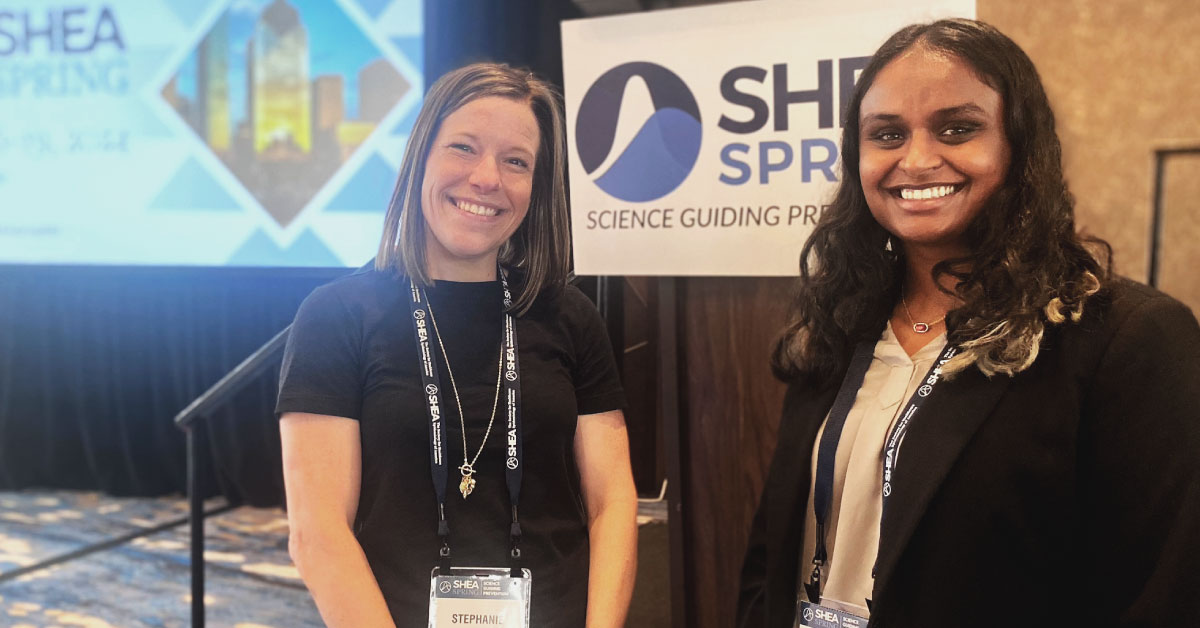Medical Student Receives Alpha Omega Alpha Research Fellowship

Sai Pranathi Bingi
Sai Pranathi Bingi, a third-year student at the Texas Tech University Health Sciences Center (TTUHSC) School of Medicine, has been awarded a 2024 AΩA Carolyn L. Kuckein Student Research Fellowship by Alpha Omega Alpha, the national medical honor society founded in 1902. The award includes $5,000 to support Bingi’s research project titled, “The Impact of Clostridioides difficile Testing Method on the Incidence of Healthcare-Associated Infection.”
Clostridioides difficile is a spore-forming bacterium most commonly found in the intestines. It is highly transmissible, especially within health care and shared living facilities. It is a Gram-positive bacteria, which means it has a thick cell wall that protects it from antibiotics and common disinfectants.
Patients can contract and carry Clostridioides difficile infections (CDIs) without presenting common symptoms such as appetite loss, abdominal pain, diarrhea, nausea and vomiting; however, those who display symptoms can become very ill and are highly contagious. To prevent CDI outbreaks within health care facilities, providers must recognize and diagnose the disease and then implement effective measures to contain it.
In 2011, the Centers for Medicare and Medicaid Services began a mandatory reporting program to increase hospital accountability and prevent CDIs. A preliminary analysis showed a significant decline in state-specific standardized infection ratios of CDI. However, the cause of this decline has yet to be determined and could be related to improved prevention methods, diagnostic strategy changes or some combination of both.

Stephanie Stroever, Ph.D., and Sai Pranathi Bingi
Standardized infection ratios are used to track health care-associated infections over a given period of time to compare the actual number of infections at each hospital to the predicted number of infections based on risk factors. Stephanie Stroever, Ph.D., director of research for the Emergency Medicine Division at the TTUHSC School of Medicine, said Bingi’s project will seek to compare the diagnostic practices of U.S. hospitals from 2011-2021 by focusing on the use of any two-step algorithm to improve the accuracy of diagnosing active CDIs.
In two-step tests. the first step is to use a molecular (e.g., tiny molecule) test to determine if there is any Clostridioides difficile DNA present in a stool sample. If yes, the second test specifically looks for the toxin that causes symptoms. People often have the bacteria without the disease, so using two steps keeps us from incorrectly treating a person simply for having the bacteria in their gut.
“Her hypothesis is that less than 20% of U.S. hospitals used a two-step algorithm before 2017 when the Infectious Disease Society of America and the Society for Healthcare Epidemiology of America published an update of the Clinical Practice Guidelines,” Stroever said. “This update sparked a significant increase in the proportion of hospitals who reported using a two-step algorithm after 2017.”
In addition, Stroever said Bingi will seek to determine the impact two-step algorithms have produced on CDIs that were reported to the National Healthcare Safety Network from 2011-2021. Her working hypothesis is that the incidence of C. difficile events was reduced significantly within hospitals that transitioned to two-step algorithms.
“Research conducted by others has shown the benefits of a two-step algorithm for individual hospitals, but none have analyzed their impact on CDIs on a national basis,” Stroever added.
Stroever said the study has the potential to increase support for implementing two-step algorithm testing for CDIs. One component of the study is to develop a map showing the historical trajectory of CDI diagnostic practices in U.S. health care facilities that also describes the influence of various testing methods on CDI rates.
“While our pilot analyses demonstrated a decrease in health care-associated CDI rates, the impact of two-step diagnostic methods on this trend has yet to be analyzed,” Stroever said. “In health care epidemiology, it is critical to understand the determinants of change and the factors that contribute to that change. This study is the first step in understanding to what extent the downward trends in CDI are due to changes in testing method versus other factors such as improved antimicrobial stewardship methods, environmental cleaning and transmission-based precautions.”
Related Stories
TTUHSC Receives $1 Million Gift from Amarillo National Bank to Expand and Enhance Pediatric Care in the Panhandle
TTUHSC School of Medicine leaders accepted a $1 million philanthropic gift from Amarillo National Bank on Tuesday (Feb. 10), marking a transformational investment in pediatric care for the Texas Panhandle.
Texas Tech University Health Sciences Center Permian Basin Announces Pediatric Residency Program Gift
TTUHSC Permian Basin, along with the Permian Strategic Partnership and the Scharbauer Foundation, Feb. 5 announced a gift that will fund a new pediatric residency.
The Ph.D. Programs that Shape Health Care
The Graduate School of Biomedical Sciences Ph.D. programs at TTUHSC provide the foundation, mentorship and research opportunities you need to pursue groundbreaking work.
Recent Stories
The John Wayne Cancer Foundation Surgical Oncology Fellowship Program at Texas Tech University Health Sciences Center Announced
TTUHSC is collaborating with the John Wayne Cancer Foundation and has established the Big Cure Endowment, which supports the university’s efforts to reduce cancer incidence and increase survivability of people in rural and underserved areas.
TTUHSC Receives $1 Million Gift from Amarillo National Bank to Expand and Enhance Pediatric Care in the Panhandle
TTUHSC School of Medicine leaders accepted a $1 million philanthropic gift from Amarillo National Bank on Tuesday (Feb. 10), marking a transformational investment in pediatric care for the Texas Panhandle.
Texas Tech University Health Sciences Center Permian Basin Announces Pediatric Residency Program Gift
TTUHSC Permian Basin, along with the Permian Strategic Partnership and the Scharbauer Foundation, Feb. 5 announced a gift that will fund a new pediatric residency.
